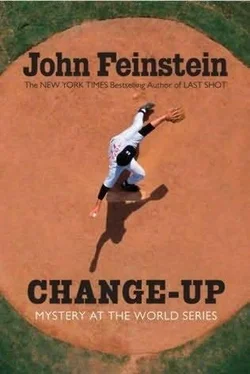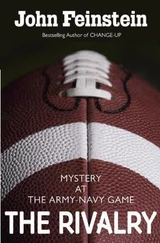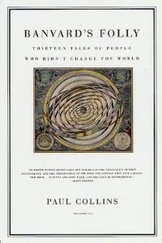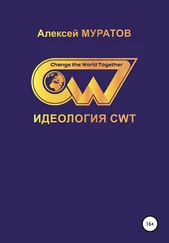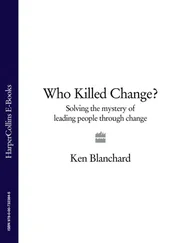Hoy put up his hand. “You know what, it’s been a really interesting day, and I was really happy to help you out a little,” he said. “When you’re rich and famous, remember me, that’s all I ask.”
“Come on,” Stevie said. “The paper’s going to pay for it.”
“In that case, it’s a thousand dollars,” Hoy said, causing Stevie’s mouth to drop for an instant, until he realized he was kidding.
“Take the money and buy that girl a nice dinner,” Hoy said. “Charge that to the paper. They owe you.”
They shook hands and Hoy drove off as Stevie headed into the station. Stevie realized he was becoming so jaded that he couldn’t help but wonder if Hoy had an agenda-maybe Walsh or someone had been paying him to keep an eye on him all day. He hoped not.
He had just missed the 4:45, so he was stuck waiting for the 7:25. He grabbed some pizza in the station and called Kelleher. When he pulled his phone out, he realized he’d turned it off when he went into Molloy’s office and forgotten to turn it back on. There were six messages-three from Kelleher-waiting for him.
“Where’ve you been?” Kelleher asked. “I’ve been worried.”
“I’m fine,” Stevie said. “I’m waiting on the seven-twenty-five train.”
“Good. Before you fill me in, let me fill you in. I found out who Donald Walsh is-get this, he works for David Felkoff.”
“WHAT?”
“Yeah. For the first time in my life, I’m actually looking forward to talking to that SOB.”
Stevie caught Kelleher up on what had happened with Erin James and Joe Molloy.
“You’re right,” Kelleher said. “We can’t write anything based on what you’ve got now, but I think at some point we need to try to talk to Doyle about it. We can also make another run at Susan Carol. It may be that the story she got from David was different, and if she thinks either she or David was lied to, she might decide to fill in some of the blanks.”
“We’d still need to talk to Doyle, though, right?”
“Absolutely. You can’t accuse a man of being responsible for his wife’s death without giving him a chance to tell his side of it.
“Look, when you get in, take a cab to the ballpark. The game will still be going on, and even if it’s not, we’ll all still be here working. We can talk more tonight.”
Stevie hung up and finished his pizza. He boarded the train an hour later and put his head back to think about the day. He wondered exactly what he was doing-or trying to do. He had started writing about sports because he loved sports. Going to the Final Four and the Super Bowl and the World Series had been amazing, even if he was becoming a bit jaded.
He certainly had not started writing in order to be chased by a giant dog or threatened by a drunken ex-cop. And beyond that, he couldn’t escape one nagging thought: why was he chasing this story? Was it, in fact, a story? Doyle and his family had been through a tragic experience that still clearly affected them to this day. Doyle hadn’t been as forthcoming as he might have been about the facts, but maybe he was entitled to that. It happened twelve years ago and was still painful. Who could blame him for not saying more?
Stevie sighed, wondering where it would all lead next. He closed his eyes and listened to the train as it chugged through the night. The next thing he knew, he heard the conductor’s voice: “ Washington, DC, in five minutes!”
He looked at his watch: 10:50. Maybe he would catch the end of the game. After all, that had been the reason he’d made the trip to Washington in the first place.
16: “CALL ME”
THE CABDRIVER, who was a little surprised when Stevie asked to go to the ballpark, had the game on the radio. It was the bottom of the seventh inning when Stevie got into the cab, the top of the eighth when he got out at the corner of South Capitol Street and Potomac Avenue. The Red Sox were leading, 4-3.
His press credential got him into the ballpark easily enough, and as instructed by Kelleher, he rode the elevator up to the sixth floor rather than heading for the auxiliary press box.
“Doug Doughty is in the writing room watching on TV,” Kelleher told him when he arrived. “The wireless works better back there for some reason, and he’s got to file his whole story as soon as the game’s over. You can sit with me.”
That sounded good to Stevie, but the Nationals press box was so high up the players looked tiny. Kelleher had mentioned to him that Stan Kasten, the Nationals’ president, had told him the only reason it wasn’t higher was because it was already at the top of the stadium. Doughty probably had a better view on TV.
The game had been back and forth all night, but as soon as Stevie settled in to watch, Big Papi slammed a three-run homer and blew it open. Stevie noticed more than a few cheers when Ortiz hit the home run. Clearly, a fair number of Red Sox fans had gotten their hands on tickets-even in Washington.
Stevie kept glancing at the TV monitor next to his seat during the ninth, which seemed to go on forever because Jonathan Papelbon, the Red Sox’s closer, insisted on walking two hitters just to make things interesting. Every time Papelbon threw a ball, the cameras shot to Terry Francona, who, almost on cue, would spit sunflower seeds.
“How many of those does he put in his mouth a night?” Stevie said, pointing to Francona on the TV screen.
“What’s the number just below infinity?” Kelleher answered, laughing. “It’s a lot healthier than the old days when they all chewed tobacco.”
“Now, that sounds gross,” Stevie said.
“Used to be you weren’t considered a major leaguer until you chewed,” Kelleher said. “Rookies used to get sick trying to learn how to chew the stuff without swallowing. Now, thank God, they’ve banned it. Some guys still sneak up the runway to chew, but most go with the sunflower seeds or gum.”
Papelbon finally struck out Adam Dunn with two on and two out to end the game and give his team a 7-3 win and a 2-1 lead in the series. The Nationals fans left quietly and quickly; the Red Sox fans lingered. Stevie heard one voice from the nearby upper deck bellowing: “It ends here on Sunday! No trip back to Boston!”
Stevie had been given the night off from writing, but he volunteered to go into the Red Sox clubhouse to shag some quotes for Kelleher, who was writing his column on what it meant for Washington to host a World Series game for the first time in seventy-six years. He wanted a couple of quotes from Red Sox players on the crowd, the stadium, and if they could relate to Washington’s wait after being part of a franchise that had gone eighty-six years between world titles themselves before their breakthrough in 2004.
Stevie had just finished talking to Jason Varitek, who had said all the right things about the ballpark and the fans and seemed to really mean them. He was walking across the clubhouse to see if he might get close enough to David Ortiz to get a line or two from him when he saw Susan Carol. She was crossing in the other direction.
“Hey,” he said awkwardly. “How goes it?”
“Fine,” she said. “How was your day?”
“Interesting,” he said.
“I’ll bet,” she answered, and kept walking.
Stevie started to turn around and follow her, then thought better of it. He really didn’t know what he thought of the day himself, and Kelleher was on deadline. He waited for the Ortiz crowd to thin-which didn’t take as long as usual, since Mike Lowell had hit two home runs himself-and asked Ortiz what he thought of the ballpark and the crowd.
“Very polite,” he said, drawing a laugh. “No, I mean it. Compared to Yankee Stadium, this was like a home game. I mean, we had a lot of our own fans here. You could certainly hear them when I hit the home run. Still, I don’t understand why they build a stadium in downtown Washington and you can’t see any of the monuments.”
Читать дальше
